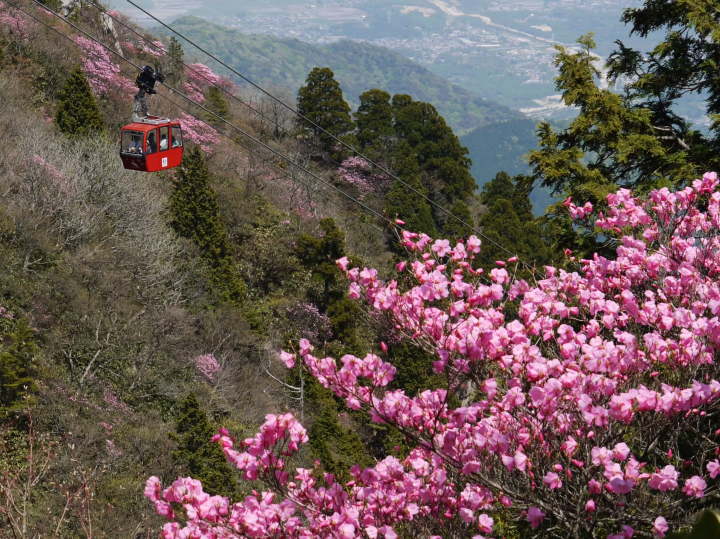Delight In Obuse, A Town Famous For Chestnuts And Hokusai In Nagano

Beyond the quaint town of Obuse tower Nagano prefecture’s five northern mountains known among the locals as Mamikutoi. To see them on a clear day, just like the peak of the mighty Mt. Fuji, is considered lucky!
As I follow the narrow pathway weathered with endless years, a mélange of two-storey houses and confectioneries in neatly lined streets appear before me. The crisp scent of snow falling from the naked fruit trees mixed with the morning’s oven-fresh delights reaches my nose. It’s great to be back.
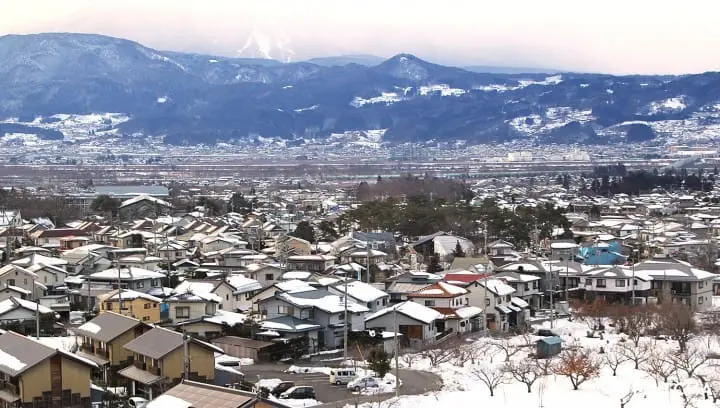
Obuse is 15 km north of Nagano city and can be reached in about 35 minutes from Nagano Station via the Nagano Dentetsu Railway. By car, take the Joshin-etsu Expressway. Once you reach Obuse Station, turn left for the tourist center and you can begin your trip from here.
Obuse native Yuuji-san signals me to sit down saying “Dozo” (“Have a seat.“). The elderly staff at the tourist center says chestnuts were first cultivated here during the Edo period – about 400 years ago. “It is number one in Japan”, he says in his best English.
Chestnuts are known in Japanese as kuri or maron, the latter being a term derived from the French word with the same meaning. The same word is used in English with reference to the color maroon. Obuse is famous for its production of chestnuts, as well as for its chestnut confectioneries - some of which will be introduced below in this article.
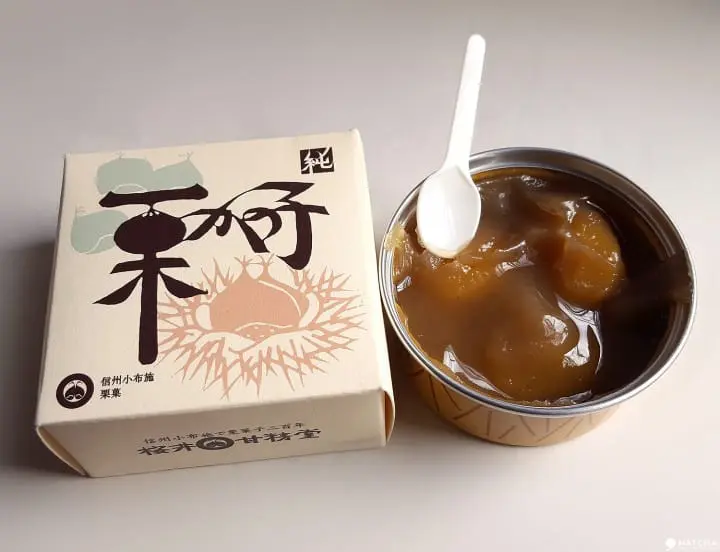
Obuse's household brand confectionery Kuri Kanoko (shown in the picture above) is sold for 400 yen in most shops and supermarkets. Three mouth-size pieces of these chestnuts will leave you hanging.
Yuuji-san recommends at least 3 hours to explore Obuse plus another hour for the Hokusai Museum, which is 12 minutes on foot from the station. “I’m sorry but there are no buses in this season”, he says as he looks down clasping his hands. The shuttle bus (300 yen one way) doesn’t run between December and March. No worries. A town with 11,000 residents, Obuse is best explored by foot or, if you’ve got 400 yen to spare, you can rent a bike for two hours at a shop by the station.
I take the many pamphlets given to me. As we part ways, he says that he’s been to Australia and New Zealand. “I went there 20 years ago – they’re nice places!”, he says.
Below is not exactly an itinerary but rather some of the places you could indulge in during your visit to Obuse. Let’s stroll around!
The Hokusai Museum in Obuse
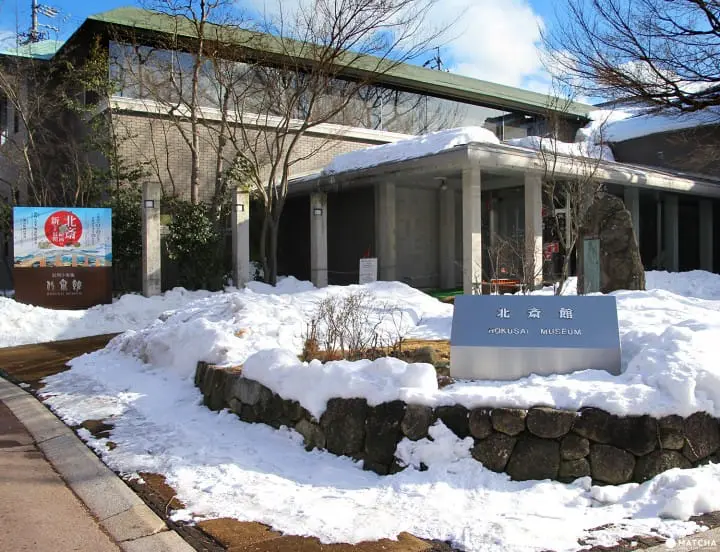
The Hokusai Museum was established in 1976 to preserve, collect and showcase works of woodblock print master Katsushika Hokusai (1760-1849). He painted courtesans and actors, landscapes, nature, images of daily life and mythical creatures. In his later years, he lived in Obuse where he created his only 3D works.
The Hokusai museum permanently exhibits more than 40 original works by the ukiyo-e master, of which one will go to England from May. The entrance fee is 800 yen for adults and 500 yen for students.
Hokusai Museum
Address: Nagano, Kamitakai, Obuse, Oaza-obuse 485
Hours: 9:00 - 17:00 (Nov. 4th - April 30th), 9:00 - 18:00 (May 1st - August 31st), 9:00 - 17:30 (Sept. 1st - Nov. 3rd)
Website: http://hokusai-kan.com/w/other-languages/english
Obuse's Famous Chestnut Confectioneries and Shops
Shop after shop, sweets after sweets, each store has their own specialties and if you find the same product in two different stores, don’t bother comparing prices because they are identical.
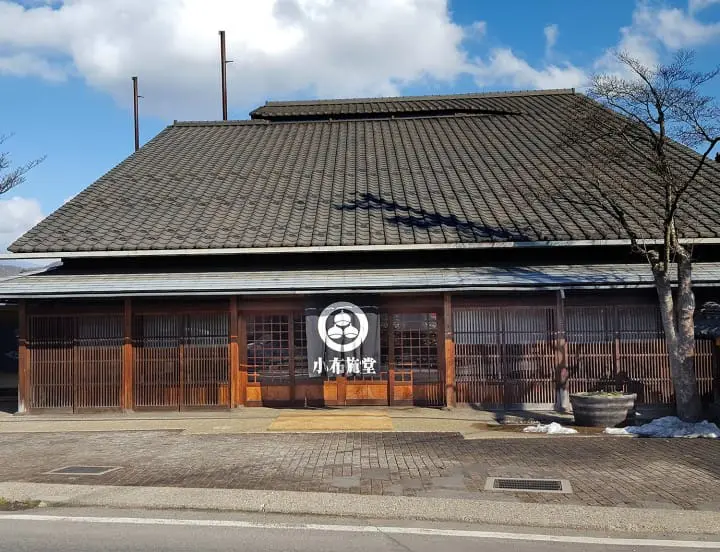
Obusedo is a well-established shop in the Nakamachi area that specializes in chestnut confectioneries (kurigashi) and seasonal specialties.
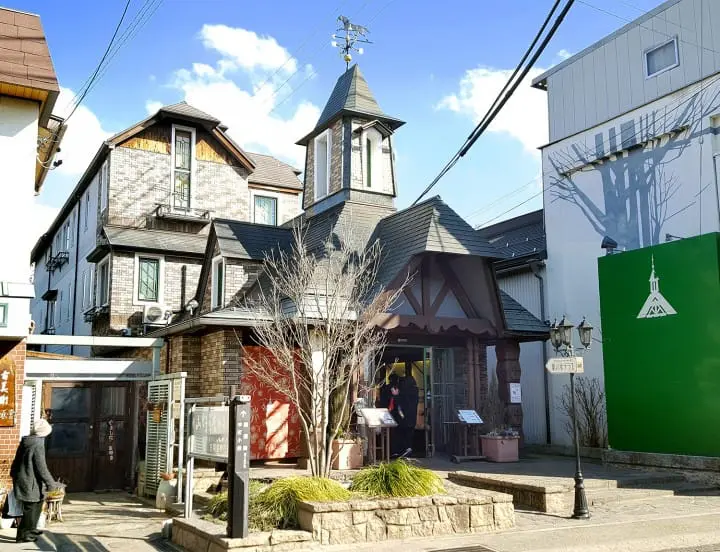
Kurinoki Terrace, also in Nakamachi, specializes in tea and Mont Blanc chestnut cake, a must-try.
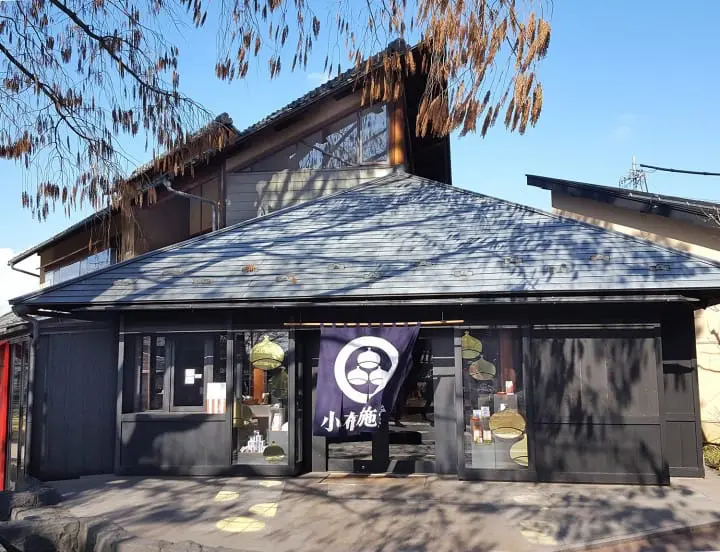
Chestnut confections meet Italian cuisine at the San-Poo-Loh Restaurant and Terrace, which is located right across the Hokusai Museum.
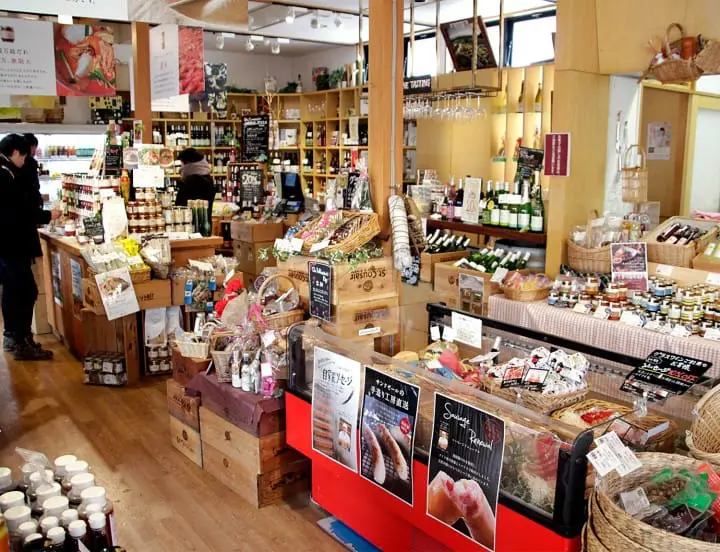
Off Nakamachi, you will find the shop of an award-winning winery St. Cousair. The name was inspired by a 2-week honeymoon trip to the French countryside by proprietors Kuze-san and Mayumi-san. They began selling handmade low-sugar content jams but now the shop has grown to sell delectable condiments and other delights.
Sales staff Matsumoto-san greets me with “Irasshaimase” and offers me hot yuzu (citrus) ginger tea in a paper cup. She says the top three products that are especially popular among visitors from overseas are wine, jam, and pasta sauce. “The popular wines are from America and Japan, while the sauces and jams are made in Japan”, she says.
Historical Temples in Obuse
Twenty minutes away from Nakamachi lie two temples, Ganshoin and Jōkō-ji. They are minutes apart on foot.
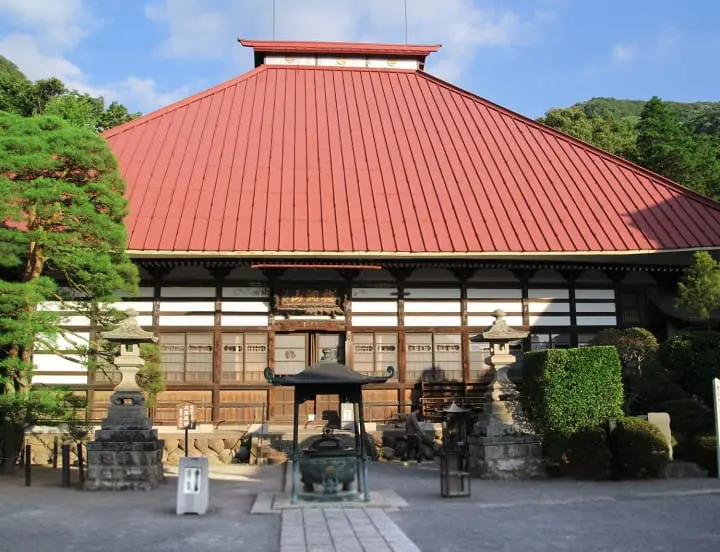
The painting on the ceiling of Ganshoin Temple has been mystifying visitors for over 160 years with Hokusai’s masterpiece, ‘Phoenix Glaring in All Directions’.
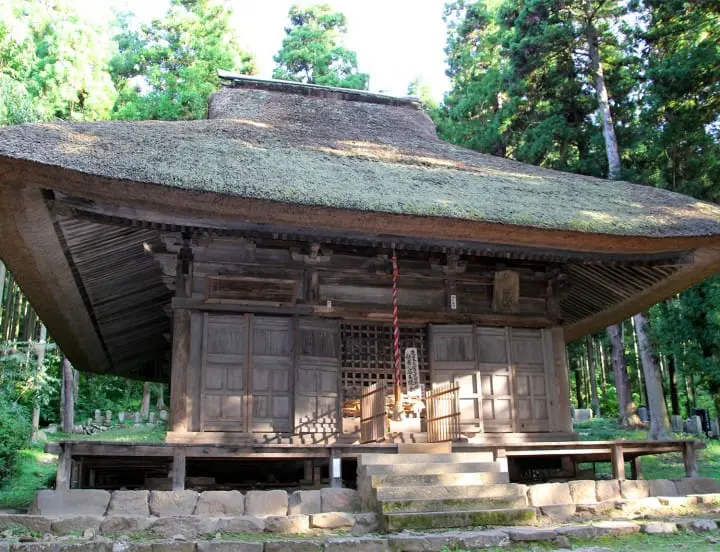
The trees that run parallel to the uneven stone path lead to Jōkō-ji, a 600-year-old Buddhist temple that is a national cultural asset.
Enjoy a Hot Spring Cure
To end any trip in Nagano, go to a hot spring to relax and recuperate. Inn owner Terashima-san from Akebi-no-yu says Australians visit here the most. Perhaps it’s because Obuse is surrounded by ski resorts and Aussies flock to them like happy hour at a pub on a Friday afternoon.
Akebi-no-yu has an indoor bath, sauna, a massage parlor where prices start from 2,000 yen for 25 minutes, and the inn’s forte, an outdoor hot spring (onsen), which has a breathtaking view of Mamikutoi, the five mountains surrounding Obuse.
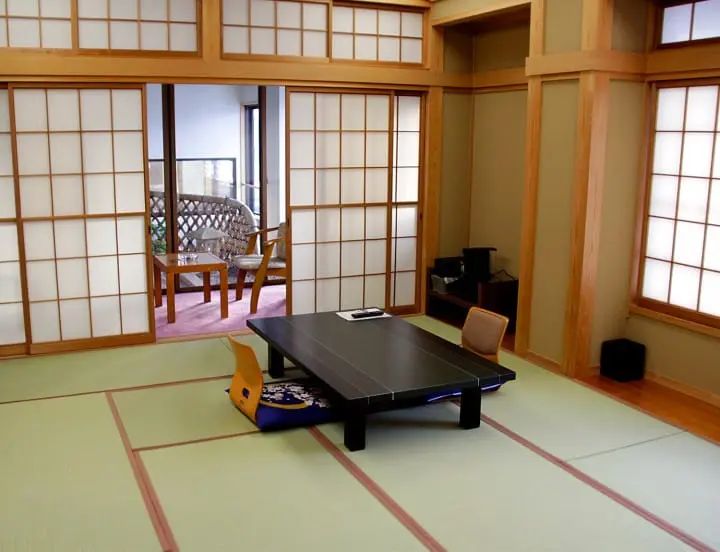
One night (excluding meals) at Akebi-no-yu costs 14,000 yen per adult and 9,800 yen per child for a Special Room like the one shown in the picture above on weeknights.
This inn’s onsen contains calcium, sodium chloride and sulphur. These properties have great effects in treating hypertension, chronic diseases, and low sugar level. They also improve blood circulation and are great for the general well-being of the body. The water temperature is 42.8°C (109.4°F), which is hotter than usual, so first timers should go in easy.
When done, make sure to rinse with soap or risk smelling like a 5-day-old egg sandwich due to the rich sulphur content!
Lastly, please observe the house rules. Visitors with tattoos are not allowed to bathe in the onsen. At the hot spring, please use the free locker to store your belongings. Akebi-no-yu can be reached from the station in about 5 minutes by taxi (1,000 yen).
Other Tips for Enjoying Your Trip to Obuse
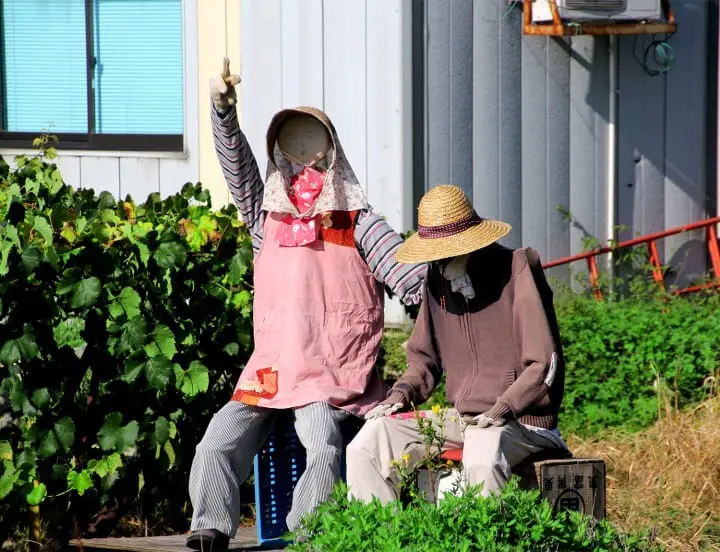
Don’t mistake these scarecrows for people when you come in autumn, September to November!
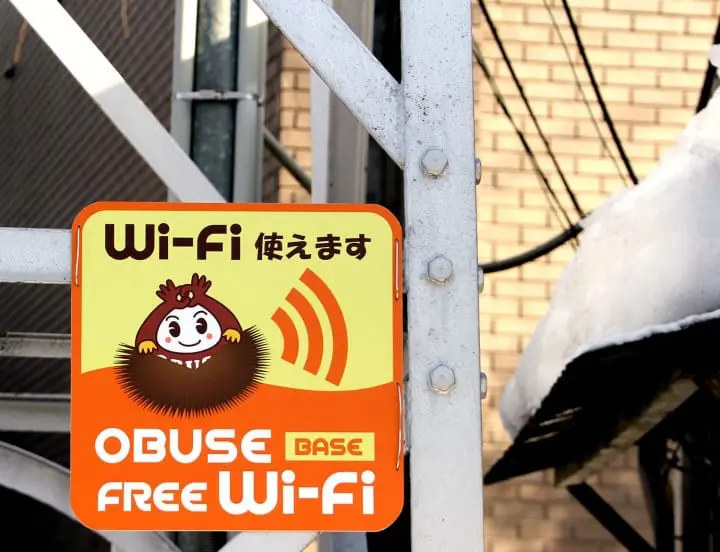
You can use Wi-Fi anywhere in Obuse. It’s free for up to 60 minutes per session. Simply input your email address to be able to use it.
A 4-hour day trip, as suggested by Yuuji-san from the tourist center, is not enough to explore most of Obuse, or other places for that matter. There are many other points of interest in Obuse - the chapel, beautiful gardens with seasonal flowers, fruit farms, sake breweries, and the popular ice cream parlor Twell.
Some say the best time to visit Obuse is autumn when the chestnuts are in full swing along with the changing leaves that transform Japan into a colorful masterpiece, perhaps even better than Hokusai’s. But the best time is the time you are here.
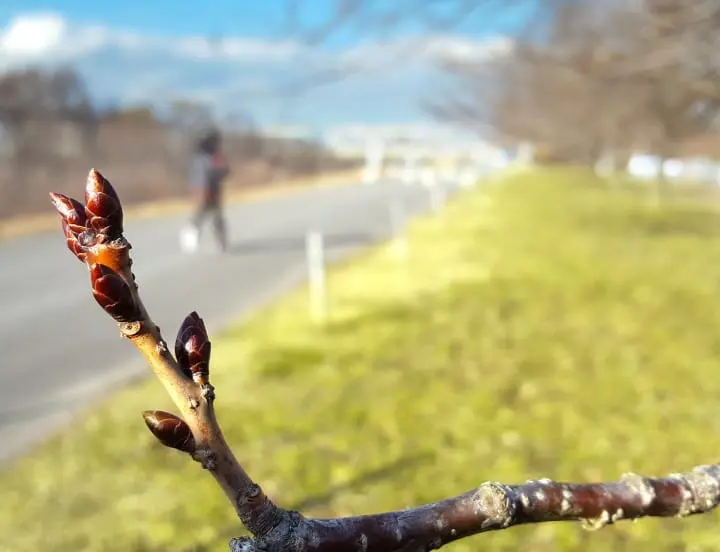
If you come in spring and you want to shed some winter weight, jog along Matsu River next to the Obuse Highway Oasis and Obuse Park, 2.5 km from the station. Or simply take a stroll around the park while indulging in one of Japan’s most extraordinary pastimes of the year, cherry blossom viewing (ohanami).
For more travel information on Obuse, please refer to this online Obuse Tourist Guide. Have a delightful time in Obuse!
Sharing stories of people with people through words and photos.











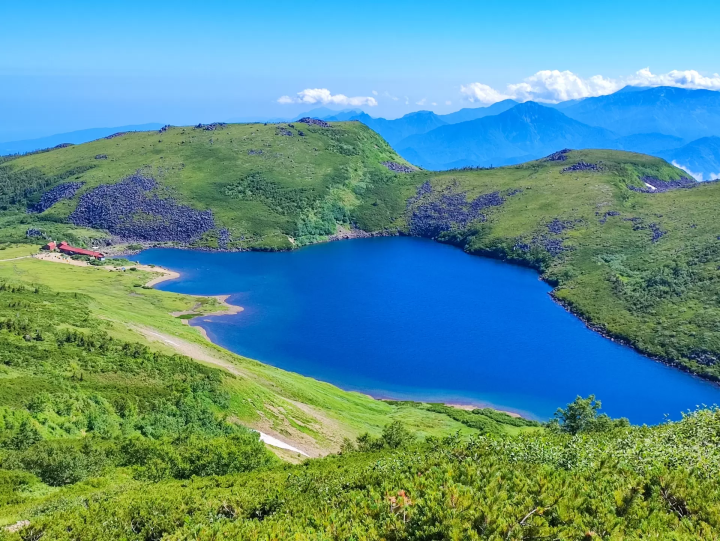



























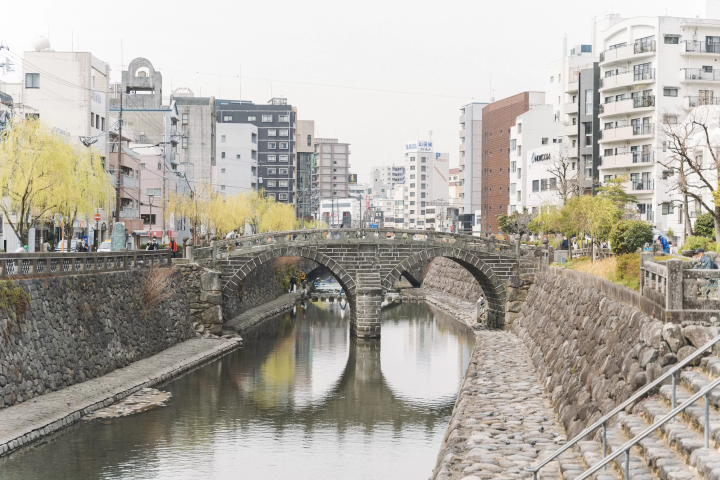
![[During Your Kumano Trip] Cape Shionomisaki Tourist Tower](https://resources.matcha-jp.com/resize/720x2000/2025/11/05-249097.webp)
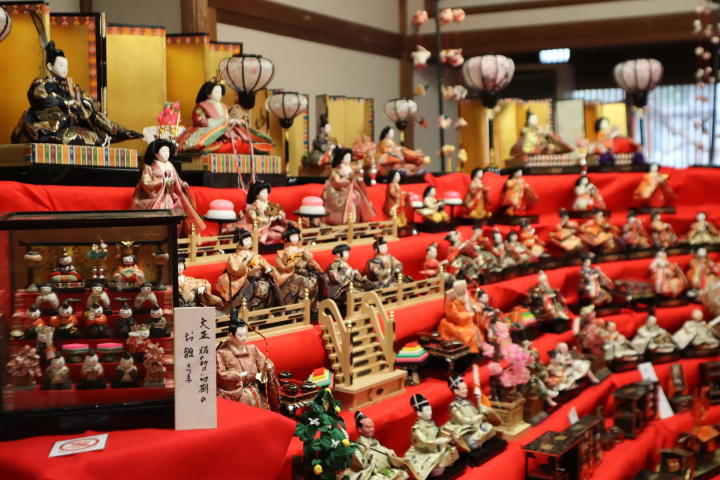
![[Kagoshima] Enjoy Minamisatsuma City to the Fullest! A Guide to the Scenic Beauty and Culture of Five Areas](https://resources.matcha-jp.com/resize/720x2000/2026/02/15-258755.webp)
